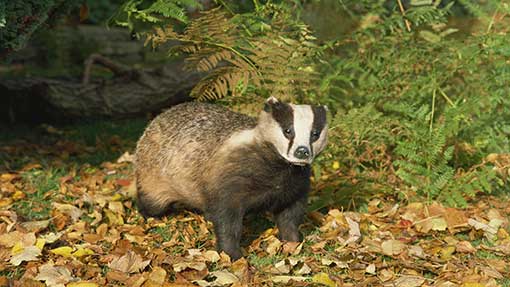Biosecurity trial offers blueprint for TB control

Wales’s chief vet, Dr Christianne Glossop, says a newly published analysis of biosecurity in a small trial area provides a framework to protect farms from TB in Wales and across the world.
Dr Glossop’s robust defence of the Evaluation of the South West Wales Wales Biosecurity Intensive Treatment Area, commissioned by the Welsh Assembly Government followed criticism from Badger Trust Cymru.
The pressure group said the report revealed biosecurity on some farms was appalling and demanded improved education and awareness within both the farming industry and the veterinary profession. The group has called for minimum standards of biosecurity to be a legal requirement.
But Dr Glossop said the criticism was inappropriate.
The trial was the first of its kind and had provided a means of developing the right formula to improve biosecurity and protect against infection.
The overriding principle was to protect a susceptible population of animals from the introduction of TB. The question was how to minimise risk where it has to be taken, such as introducing new stock to the holding.
“This was a study of a group of farms in a selected area of 100 square kilometres,” she said. “Eighty-six cattle farmers were able to complete the study. We worked closely with the farmers and the vets and devised a technical method of measuring risk factors.
“The farmer’s own vet provided advice and as a result of quality time with the private vet, farmer’s biosecurity has improved. This is a framework for raising the game in terms of biosecurity in Wales and across the world.
“We now have a cornerstone for what to do throughout Wales. This is a really important piece of the eradication strategy and will contribute towards protecting clean areas of Wales and the clean farms of Wales.”
But Steve Clark, Badger Trust Cyrmu spokesman, was critical that the involvement in the trial was entirely voluntary.
“One disturbing issue is that some of the vets said they found themselves to be firefighting as opposed to being trained in disease prevention in terms of biosecurity with regard to large animals,” he said.
“There is also more education needed among farmers, with different attitudes to biosecurity evident between fathers and sons.
“It would make a huge difference if more attention was paid to failings within the farming industry and within the veterinary profession.”
The report, drawn up by Cardiff University, recommends incentivising farmers to improve their biosecurity and promoting biosecurity among other agricultural businesses.
